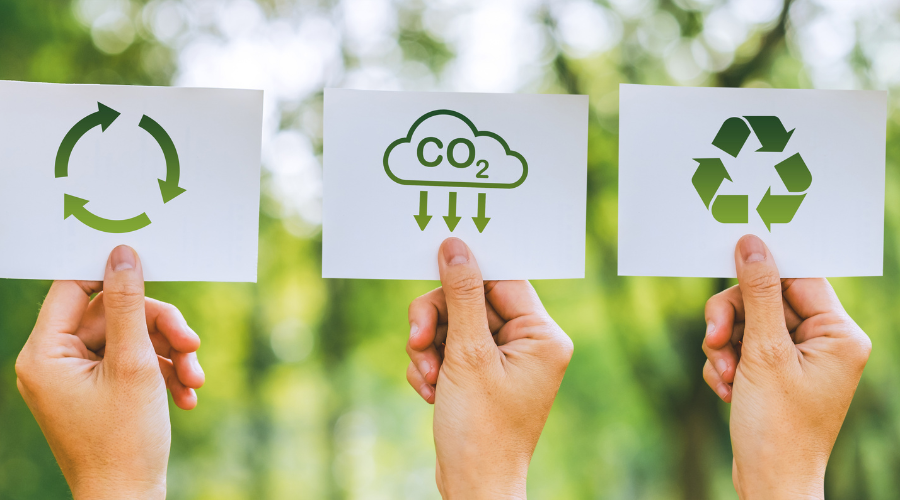Table of Contents
Complying with Environmental Protection Laws in Australia: Key Insights for Businesses
Over the years, Australia has developed a comprehensive body of legislation addressing environmental issues. This includes both federal and state laws that govern various aspects of environmental management. For businesses, understanding and complying with these regulations is essential, not only for legal compliance but also for fostering a sustainable future.
Introduction to Environmental Protection Laws in Australia
Environmental protection laws in Australia play a vital role in safeguarding our natural resources and ecosystems. These laws are designed to prevent pollution, manage waste, and protect biodiversity while promoting sustainable development. Given Australia’s unique environment—ranging from the Great Barrier Reef to the expansive outback—having robust legal frameworks is crucial to maintaining our natural heritage.
Key Legislation Governing Environmental Protection
Environment Protection and Biodiversity Conservation Act 1999 (EPBC Act)
The Environment Protection and Biodiversity Conservation Act 1999 (EPBC Act) is Australia’s primary piece of federal legislation aimed at protecting the environment and conserving biodiversity or those ‘matters of national environmental significance‘. It applies to actions that significantly affect the environment, including developments that could impact threatened species or ecological communities.
The EPBC Act requires businesses to undergo an assessment process before undertaking projects that may impact the environment. This includes preparing an Environmental Impact Statement (EIS) to evaluate potential effects and outline mitigation measures. The act not only protects nationally significant environmental assets but also sets a framework for sustainable development.
State and Territory Environmental Laws
In addition to federal legislation, each Australian state and territory has its own environmental laws tailored to local conditions. For example:
-
New South Wales: The Protection of the Environment Operations Act 1997 focuses on regulating pollution and waste management.
-
Victoria: The Environment Protection Act 2017 introduces a new framework for environmental protection, emphasising risk-based approaches to managing environmental harm.
-
Queensland: The Environmental Protection Act 1994 aims to protect Queensland’s environment while promoting sustainable development.
Understanding these local laws is critical for businesses operating across different regions, as compliance requirements may vary significantly.
Local Government Regulations
Local councils also play a key role in environmental management. They enforce planning regulations and local laws that can impact land use, waste management, and environmental conservation. These regulations often focus on specific local issues such as stormwater management, noise pollution, and heritage conservation.
For businesses, engaging with local councils is essential to ensure compliance with local regulations. This might include obtaining the necessary permits for construction projects or adhering to waste disposal guidelines.
Environmental Assessment and Approval Processes
Before commencing projects that could affect the environment, businesses must navigate environmental assessment and approval processes. These assessments help identify potential environmental impacts and ensure that appropriate measures are in place to mitigate harm.
The EPBC Act outlines the assessment process, which begins when a business proposes an action that may significantly impact the environment. If the action triggers the EPBC Act, the business must prepare an EIS, detailing the potential environmental impacts and strategies for mitigation.
The EIS is then reviewed by the relevant authorities, which may include federal, state, and local government agencies. This collaborative approach ensures that all aspects of environmental protection are considered, leading to informed decision-making.
Compliance and Enforcement Mechanisms
Compliance with environmental laws is not just a matter of legal obligation; it is a commitment to responsible business practices. Various government agencies oversee enforcement of these laws, including the Department of Agriculture, Water and the Environment at the federal level.
Businesses found to be in breach of environmental regulations can face serious penalties, including fines, sanctions, or even imprisonment for serious violations. It’s essential for businesses to establish compliance management systems to monitor their environmental performance and ensure adherence to laws.
Community reporting also plays a significant role in enforcement. Local communities are encouraged to report environmental breaches, providing valuable information that helps authorities take appropriate action.
Impact of Environmental Protection Laws on Businesses
Environmental protection laws have significant implications for various industries, including construction, mining, and agriculture. For instance, a construction company planning a new development must consider potential impacts on local ecosystems and comply with both federal and state laws before proceeding.
To ensure compliance, businesses should adopt sustainable practices that align with environmental laws. This may include conducting regular environmental assessments, training staff on compliance obligations, and investing in cleaner technologies. By prioritising environmental responsibility, businesses can not only avoid legal repercussions but also enhance their reputation and appeal to environmentally conscious consumers.
Recent Developments and Future Trends
Environmental laws in Australia are constantly evolving, reflecting the growing awareness of climate change and sustainability. Recent amendments to the EPBC Act have aimed to strengthen protections for biodiversity and streamline approval processes for environmentally responsible projects.
Looking ahead, emerging trends include a greater emphasis on climate change adaptation, stricter regulations on waste management, and increased community engagement in environmental decision-making. Businesses will need to stay abreast of these changes to remain compliant and contribute positively to environmental sustainability.
Case Studies of Environmental Law Applications
Several high-profile cases illustrate the application of environmental laws in Australia. For example, the Adani Carmichael coal mine project faced extensive scrutiny under the EPBC Act, with concerns raised about its impact on the Great Barrier Reef and local biodiversity. The legal battles surrounding this project highlighted the importance of compliance and public engagement in environmental matters.
These cases serve as valuable lessons for businesses, emphasising the need for thorough environmental assessments and proactive community engagement.

How Can Businesses Comply with Environment Protection Laws?
Businesses can ensure environmental obligations while contributing to a sustainable future. Being proactive not only helps avoid legal repercussions but also enhances a company’s reputation and operational efficiency.
1. Understand Relevant Regulations
Businesses should start by familiarising themselves with the specific environmental laws that apply to their industry at the federal, state, and local levels. Key regulations may include:
Environment Protection and Biodiversity Conservation Act 1999 (EPBC Act)
State-specific environmental protection acts
Local council regulations on waste and land use
2. Conduct Environmental Assessments
Regular environmental assessments are essential to identify potential impacts of business operations. This may include:
Environmental Impact Statements (EIS) for major projects
Risk assessments to evaluate the likelihood and severity of environmental harm
3. Develop and Implement Compliance Policies
Creating clear environmental policies that align with legal requirements helps ensure that all employees understand their roles and responsibilities. This includes:
Documenting procedures for waste disposal, resource use, and emissions management
Establishing protocols for responding to environmental incidents
4. Engage Staff Through Training and Awareness Programs
Training employees on environmental compliance and best practices can foster a culture of sustainability. This may include:
Workshops on environmental laws and company policies
Regular updates on changes in regulations
5. Implement Sustainable Practices
Businesses can enhance compliance and reduce their environmental footprint by adopting sustainable practices, such as:
Minimising waste through recycling and waste reduction initiatives
Implementing energy-efficient processes and renewable energy sources
Managing water use and runoff effectively
6. Monitor Compliance and Performance
Regular monitoring and auditing of environmental practices help ensure ongoing compliance. This can include:
Conducting internal audits to assess adherence to environmental policies
Tracking key performance indicators (KPIs) related to environmental impact
7. Engage with Regulatory Authorities
Maintaining open communication with regulatory bodies can help businesses stay informed about changes in laws and expectations. This may involve:
Submitting required reports and documentation in a timely manner
Participating in consultations or forums related to environmental regulation
8. Prepare for Emergency Situations
Developing an emergency response plan can help businesses respond effectively to environmental incidents, such as spills or accidents. Key elements should include:
Clear protocols for reporting incidents to authorities
Steps for mitigating environmental harm
9. Involve the Community
Engaging with the local community can enhance a business’s reputation and foster goodwill. This can include:
Public consultations about new projects that may impact the environment
Partnerships with local environmental groups for conservation initiatives
10. Utilise Compliance Management Tools
Employing compliance management software, like WorkDash, can streamline the compliance process by providing:
Automated tracking of regulatory requirements
Tools for reporting and documentation
Centralised access to compliance information
Conclusion
Environmental protection laws are crucial for preserving Australia’s unique ecosystems and promoting sustainable development. Businesses must prioritise compliance with these regulations to avoid legal repercussions and contribute to a healthier planet. By embracing sustainable practices and engaging with the community, businesses can not only comply with the law but also play a pivotal role in environmental stewardship.
Resources for Further Information
For more detailed information on environmental protection laws in Australia, businesses can consult the following resources:
Australian Government Department of Agriculture, Water and the Environment: Department Website
State Environmental Protection Agencies: Links to individual state agencies for specific legislation and guidance.
Local Council Websites: For local regulations and compliance requirements.
Environmental Consultants: Contact details for professionals who can provide tailored advice on compliance and environmental management.
By leveraging these resources, businesses can enhance their understanding of environmental laws and ensure they remain compliant while contributing to sustainable practices in Australia.
Ready to take your environmental compliance to the next level? Get a free demo of WorkDash! Our comprehensive compliance management tools will help you stay ahead of regulations, streamline processes, and ensure your business operates smoothly and responsibly. Don’t miss out on the chance to enhance your compliance efforts.





